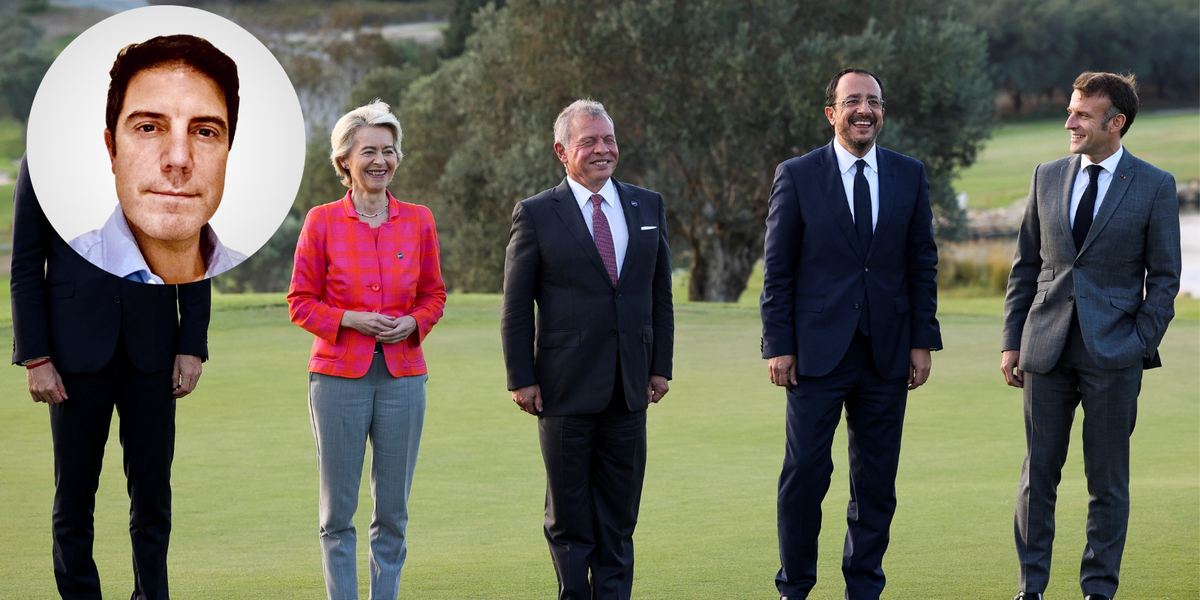The EU’s Dilemma: A Comedy of Errors in the Face of Global Irrelevance
In the realm of political satire, few shows have captured the absurdities of war and leadership quite like Blackadder Goes Forth. Set against the grim backdrop of World War I, the series often highlighted the folly of military strategy through sharp wit and humor. One memorable exchange features General Melchett boasting about a “brilliant new tactical plan” devised by Field Marshall Haig, only for Captain Blackadder to point out that it involves the same slow march into enemy fire that has failed time and again. This comedic moment resonates deeply with the current state of the European Union (EU), where leaders seem trapped in a cycle of repeating the same ineffective strategies while expecting different outcomes.
The Gloomy Backdrop of the EU
The recent Berlin Global Dialogue, a gathering of leaders from business, politics, and academia, served as a stark reminder of the EU’s precarious position on the global stage. French President Emmanuel Macron, in a moment of theatrical flair, warned that the EU could “die” if it continued down its current path of over-regulation and underinvestment. His comments reflect a growing concern that the EU is drifting aimlessly, lacking the dynamism needed to compete with more agile economies like those of the United States and China.
Macron’s "Brilliant Plan"
In a bid to address these challenges, Macron proposed a plan that echoes the sentiments of former European Central Bank President Mario Draghi. The solution? More EU integration and less national sovereignty. This approach, however, raises eyebrows as it seems to ignore the fundamental issues plaguing the union. Draghi’s report, released in September 2024, painted a bleak picture of the EU as a “regulation machine,” highlighting that since 2019, the EU has passed approximately 13,000 pieces of legislation compared to the US’s 3,000. The stark reality is that no EU company worth over €100 billion has been created from scratch in recent years, and a significant portion of Europe’s unicorns have fled the continent due to regulatory burdens.
A Cycle of Centralization
Rather than proposing a radical rethink of the EU’s structure, Draghi’s report and Macron’s subsequent remarks suggest a doubling down on centralization. The plan involves consolidating capital markets, increasing EU financing, and further diminishing national vetoes. This approach mirrors the military strategy of climbing out of the trenches to march slowly toward economic oblivion, all while competitors around the globe innovate and adapt.
The Economic Decline of Europe
The statistics paint a grim picture of the EU’s economic trajectory. In 1980, the European Economic Community boasted a population of around 260 million and a GDP that surpassed that of the United States by 12%. Fast forward to 2024, and the EU’s population has nearly doubled to 449 million, yet its GDP has shrunk to two-thirds that of the US. The gap between the EU and the US has widened dramatically, with reports indicating that Italy and France now rank below some of America’s poorest states in terms of GDP.
The Inability to Adapt
Despite the clear evidence of decline, the EU elite continues to cling to the notion that more Brussels is the answer. Macron, Draghi, and their contemporaries seem unable to acknowledge the failure of their policies or consider a return to a more decentralized Europe. The fear of dismantling the EU project, which many view as a necessary step toward revitalization, is overshadowed by a desire to create a superstate that can rival the economic powerhouses of the US and China.
The Cost of Hubris
As the EU grapples with its identity and purpose, the consequences of its leaders’ hubris are felt by citizens across the continent. The call for more integration and centralization may be a desperate attempt to salvage a sinking ship, but it risks plunging Europe further into economic stagnation. The irony is palpable: as Macron warns of the EU’s potential demise, one could argue that it might be a necessary step toward a more viable future.
Conclusion: A Call for Change
In a world where adaptability and innovation are paramount, the EU’s insistence on repeating the same strategies is akin to lemmings marching toward a cliff. The time has come for a radical reassessment of the EU’s structure and purpose. Rather than clinging to outdated notions of unity through centralization, European leaders must consider a return to a more flexible, decentralized model that empowers individual nations to thrive in a competitive global landscape. As the saying goes, sometimes the best way to move forward is to take a step back. If Macron’s warning is to be taken seriously, it may be time for the EU to embrace change rather than fear it.
